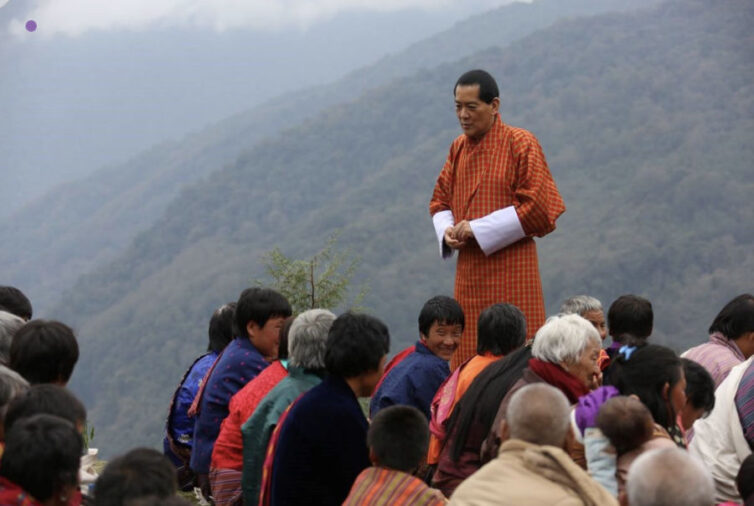 Bhutan’s peaceful transition to democracy remains one of the most remarkable stories in modern political history, a transformation led not by public demand, but by a King’s vision. In this story, we look back at how His Majesty the Fourth Druk Gyalpo handed power to the people and how that selfless decision continues to shape Bhutan’s democracy today.
Bhutan’s peaceful transition to democracy remains one of the most remarkable stories in modern political history, a transformation led not by public demand, but by a King’s vision. In this story, we look back at how His Majesty the Fourth Druk Gyalpo handed power to the people and how that selfless decision continues to shape Bhutan’s democracy today.
When His Majesty announced his decision to introduce democracy in 2005 in Trashi Yangtse, it came as an unexpected yet defining moment in Bhutan’s modern history.
At a time when people’s faith in the throne was absolute, the King believed the nation was ready to lead itself.
“The government has decided that Bhutan will hold its first-ever general elections in 2008, and I feel that our people are ready to elect a government that will serve the interests of the nation and the people.”
In the same address, His Majesty announced an extraordinary decision that the responsibilities of the throne would be handed over to the crown prince.
“The Chhoetse Penlop will be enthroned as the Fifth Druk Gyalpo in 2008. If the King has to serve the country well, he must gain as much experience as possible to serve the nation to his fullest capacity. Therefore, all my responsibilities and powers will be handed over to the Chhoetse Penlop to enable him to serve the people and the country.”
Former Chief Justice Sonam Tobgye was overcome by emotions at the time.
“It was so sad as we stepped out of the throne room and then to the courtyard. The sun was shining brightly and strongly. But when your worries are there, even the sunlight is no more warm. Normally, I used to go to the court, but that day I felt so sad. I came back directly at home. I did nothing, but I lay down on my bed. I often curse why I have to be a witness of this change?” said Sonam Tobgye, Former Chief Justice.
His Majesty’s vision culminated in Bhutan’s first parliamentary elections in 2008 and the signing of the Constitution, historic milestones gifted by a monarch who saw democracy as essential to the nation’s long-term happiness.
Today, the fruits of that decision are visible across the country. Successive governments have carried forward Bhutan’s unique model of governance, rooted in Gross National Happiness and guided by the King’s enduring wisdom.
From elders who witnessed the transition to young voters shaping Bhutan’s democratic journey today, His Majesty’s selfless act continues to inspire unity, humility, and civic responsibility.
“We grew up in a democracy, but we know it was entrusted to us by our Fourth King. That’s why we feel responsible for protecting it,” said Tsheten Phuntsho, Assistant Media and Information Officer, Finance Ministry.
Guided by His Majesty’s wisdom, Bhutan’s peaceful transition from an absolute monarchy to a democratic constitutional monarchy stands as one of the rarest and most graceful transformations in modern history.
Karma Wangdi
Edited by Kipchu







